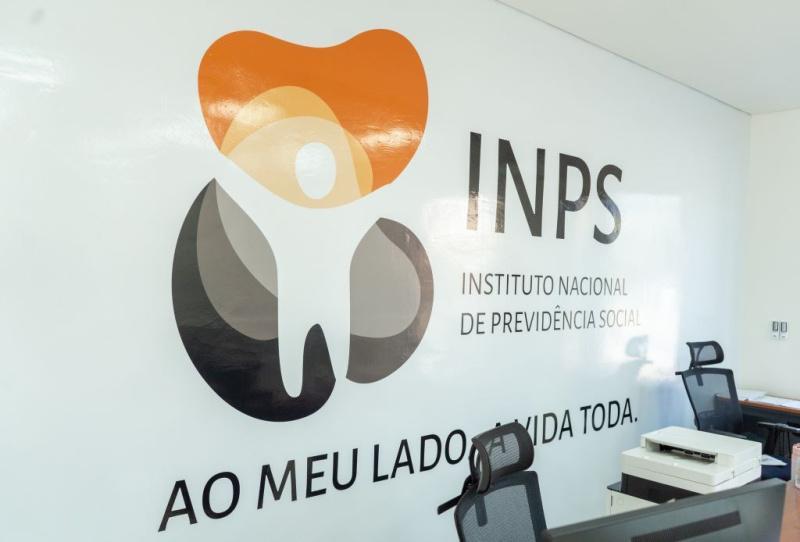Africa-Press – Cape verde. After the Government validated the first INPS auction and moved towards a “clear regulatory framework” that would allow the practice to continue, the President of the Republic said that the Government could not articulate positions with the Bank of Cape Verde and the National Social Security Institute Social because it calls into question the autonomy of the financial system regulator.
It’s another chapter in the controversy. According to the Head of State, the Government must take measures to be consistent with the recommendations of the Bank of Cape Verde (BCV) in relation to the auction of the National Social Security Institute (INPS) to guarantee “transparency in the management of public affairs”.
“The President of the Republic has to wait for the different political actors to hold the debate and take the decisions that are necessary in these contexts”, said José Maria Neves, quoted by Inforpress. The PR highlighted that it is not familiar with the report, but that according to the BCV statement, which is the regulatory entity, “there was no transparency” in the process.
The Government, according to José Maria Neves, cannot hold, as the Minister of Finance said, a meeting between the Central Bank, INPS and the Government itself to articulate positions because this, on the one hand, goes against the autonomy and independence of the Bank. Central and, on the other, “it is essential” that the Government pays attention to the corporate governance of INPS, whose management must be carried out with “rigor and transparency, complying with the rules”.
The Government’s position
Last week, the Government validated the first INPS auction – which the Investment International Bank (iib) won. At a press conference, the Minister of Finance stated that “the first auction has been held and is closed. It cannot be changed. Only the second auction is suspended and will remain suspended and we will resume, adjusting this recommendation from the Government of Cape Verde, looking at the opinion of the BCV”.
Days before the conference, the Minister of Finance had defended coordination between the INPS board of directors, the Central Bank and the Government to find better solutions for auctions and thus make Social Security resources profitable.
At the conference, Olavo Correia explained that “what is at stake here is the good measure on the part of the INPS Executive Committee. We have to understand that it is a new measure. It is new for the INPS, it is new for the BCV, which will now have to regulate this entire framework and create instruments to be able to regulate the way in which the INPS can proceed with auctions and it is a new measure also for the Government”, said the minister, cited by Inforpress.
“The Government recommends that we continue with the auctions. Once the BCV’s opinion has been issued, we have here elements that lead us to adjust the entire procedural framework for selecting the winners. And these instruments will be finalized in the coming days, in the coming weeks, so that we can then resume the entire auction process as soon as possible”, said Olavo Correia.
The INPS position
On the same day as the finance minister’s press conference, the INPS, in a statement, guaranteed that the auction process had been objective, transparent and known to all banks in a timely manner.
The INPS Executive Committee explained that the procedure was part of the policy of improving the profitability of the Social Security investment portfolio because, it said, “the previous system did not meet the established goals”, “it made the values placed in banks profitable at very high rates”. below recommended levels (…) and did not follow best international practices”.
“In 2023”, the statement also states, “INPS was faced with a substantial reduction in rates offered by banks, when renewing term deposits (…). Therefore, on the part of the INPS, there is no doubt that the auction model is the most appropriate for the capitalization of social security resources, as it is supported by criteria of security, profitability, transparency and risk mitigation”.
The INPS also said it was open to dialogue and consultation, but reiterated that “it is bound by law to the profitability of its funds, as one of the ways of safeguarding the social protection of the present and future generation (…) and therefore cannot place this attribution in the background when assuming responsibilities of other institutions”.
The position of the Central Bank
At the beginning of the month, BCV had agreed with the banks, following the complaint presented by the majority of banks participating in the auction promoted, on December 8 last year, by the INPS – the banks accused the INPS of “lack of communication to the competitors of the competition regulations, the rationale for choosing the chosen ratios and their weighting, as well as concerns about risks to the financial system, due to the nature of INPS as a systemic depositor”.
“Based on the analysis carried out”, the Central Bank said in a statement, “the BCV considers the complaint made by the majority of banks participating in the first auction to be legitimate and well-founded, as the INPS, when requested to do so, refused to make the auction regulations available, thus as it did not previously share the formula for calculating the evaluation of proposals, which appears to be a procedure that can be objectively qualified as a lack of transparency”.
“If the BCV’s action had not been timely, there was a risk that, in a short space of time, deposits amounting to 3.5 billion Cape Verdean escudos would be demobilized from some banks to a single bank that would benefit from the assumptions/criteria considered for determining the results of the auctions”, wrote the banking supervisor who also considered that “this fact would be likely to have negative impacts on the main prudential indicators of some banks”.
The BCV concluded that “the auction process, particularly taking into account the violation of the principle of transparency, would be subject to cancellation by the competent authorities. It is also reported that BCV is developing a set of macroprudential measures that aim to mitigate the risks of high concentration in common sources of financing”.
For More News And Analysis About Cape verde Follow Africa-Press






